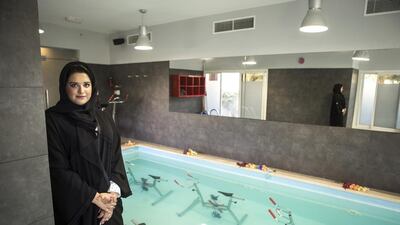DUBAI // People with type 1 diabetes are calling for greater public awareness and understanding of the condition.
They say that they are often confused with having type 2 diabetes.
Patients usually develop type 1 diabetes at an early age in most cases. It is caused by an autoimmune reaction in which the body’s defence system attacks the pancreas, causing it to fail. Type 2, however, is caused by a resistance to insulin and is often associated with obesity and a sedentary lifestyle.
Shamma Mejren, 26, a Dubai resident with type 1 diabetes, said people often thought that she had been leading an unhealthy lifestyle when she told them about her disease.
She said the Government should launch awareness campaigns about the condition, as it did for other diseases.
The Emirati bank executive said it was important to eliminate people’s fear of diabetes.
“The media have to try to portray diabetes in a positive way so that we can change people’s attitude towards diabetes,” she said, adding that some people believed that diabetics were incapable of working, playing sports or just living a normal lifestyle. “Diabetes is like when you have a driving licence. You either drive safely or drive recklessly and that will result in an accident,” said Ms Mejren.
“Diabetes type 1 happens through lack of nutrition, weak immune system, and the weakest organ to get affected is the pancreas.”
Mira Omar, a 25-year-old Emirati pharmacist from Dubai, also has type 1 diabetes. She believes that more should be done to raise social awareness of the condition. “The misconception about type 1 diabetes is that it is hereditary, when it is not. The cause is not specifically known,” she said. “The consumption of carbohydrates and sweets does not lead to it.”
Dr David Chaney, a senior education specialist with the International Diabetes Federation, said it was important to make the public aware about the differences between type 1 and type 2 diabetes.
He said type 1 diabetes was generally associated with younger people, under the age of 30. “This form of diabetes cannot currently be prevented,” Dr Chaney said.
“Up to 90 per cent of all diabetes cases are type 2 diabetes, which is often but not always associated with [being] overweight or obesity. Since this type of diabetes receives a lot of coverage, there is room for confusion, with many people thinking that all diabetes is caused by these risk factors.”
malshamsi@thenational.ae

